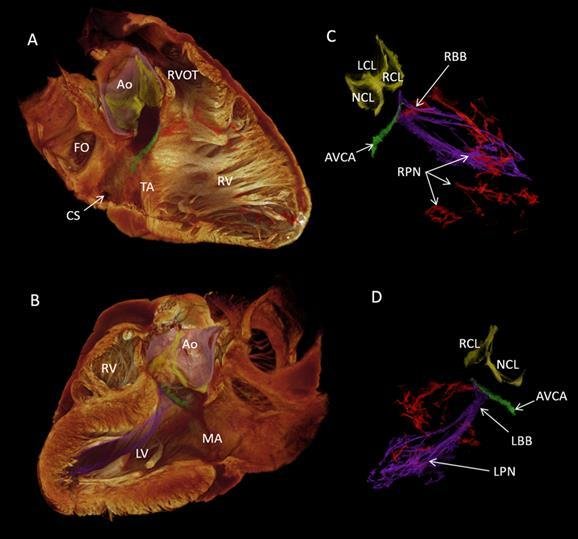3-D Human Heart Images Identify Heart Defect

Scan of a heart. Image credit: Scientific Reports
Study in a Sentence: Researchers devised a new method to study donated heart tissues with high-resolution 3-D images down to the single level by prepping the tissue in a solution that allows it to be visible using modern X-ray scanners.
Healthy for Humans: The imaging technique can allow the heart electrical conduction system to be precisely localized and visualized to identify defects leading to abnormal heart contractions. Surgeons armed with this new knowledge can refine repair of heart problems without damaging too much healthy tissue. The improved 3-D images can be used to educate medical trainees as well as provide more informative discussions on heart related problems among medical teams and patients.
Redefining Research: This new 3-D model of the human heart provides a more accurate framework of the electrical conduction system and the micro-anatomical relationships within the heart than previous computer models and mathematical models. Researchers can use it to archive real human heart pathology and study it in detail virtually. The technique may be adopted to provide better 3-D images of other soft tissue human organs.
References
- Stephenson RS, Atkinson A, Kottas P, et al. High resolution 3-cimensional imaging of the human cardiac conduction system from microanatomy to mathematical modeling. Scientific Reports. 2017;7. doi: 10.1038/s41598-017-07694-8. Published online August 3, 2017.








